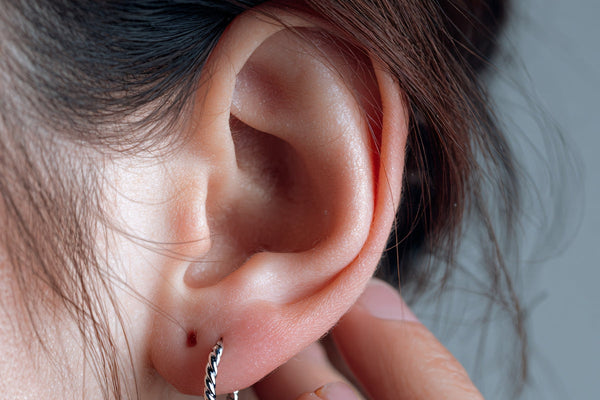
Tinnitus is the perception of sound when there is no external source. It’s often described as a ringing, buzzing, humming, or whooshing in the ears. For some, tinnitus is a mild background sound; for others, it can be more noticeable and affect concentration, sleep, or overall wellbeing.
At Leightons, we understand that tinnitus can be worrying or frustrating, but you don’t have to manage it alone. With professional support and modern hearing care, most people find effective ways to reduce its impact and improve their quality of life.
What is Tinnitus?
Tinnitus isn’t a disease itself - it’s a symptom of an underlying issue within the hearing system. It occurs when the brain interprets electrical signals from the ear as sound, even when no external noise is present.
The sound can vary from person to person. Some people describe it as a high-pitched tone, while others hear pulsing, humming, or ocean-like sounds. Tinnitus can affect one ear or both and may be constant or come and go.
It’s very common - around 1 in 8 people experience some form of tinnitus during their lifetime - and while it can’t always be cured, it can almost always be managed effectively.
What Causes Tinnitus?
There are several possible causes and triggers for tinnitus, including:
- Exposure to loud noise (such as concerts, machinery, or headphones)
- Hearing loss - often age-related or noise-induced
- Earwax build-up, which can block the ear canal
- Ear infections or fluid in the middle ear
- Certain medications, known as ototoxic drugs
- Stress or anxiety, which can make tinnitus more noticeable
- Other health factors, such as high blood pressure or jaw tension (TMJ)
In many cases, tinnitus is linked to hearing changes - when the brain compensates for reduced sound input by producing sound internally. Identifying and addressing the underlying cause can often make a big difference.
Common Symptoms of Tinnitus
Tinnitus can vary greatly between individuals, but common symptoms include:
- Ringing, buzzing, or humming in one or both ears
- Pulsing or whooshing sounds in time with your heartbeat (pulsatile tinnitus)
- Intermittent or constant noise, often more noticeable in quiet environments
- Difficulty concentrating or sleeping due to the sound
The intensity and type of tinnitus can change over time, but with support, most people find it becomes less intrusive.
How is Tinnitus Diagnosed?
If you experience tinnitus, the first step is to have your ears and hearing checked by a professional. At Leightons, we start with a detailed hearing assessment and ear health check to look for possible causes such as wax build-up or hearing loss.
If necessary, you may be referred to an ENT specialist for further investigation. Identifying the cause helps determine the best management plan.
Managing and Treating Tinnitus
Although there isn’t a single cure for tinnitus, there are several effective ways to manage it and reduce its impact on daily life:
- Sound therapy - using gentle background noise, such as soft music or white noise, to make tinnitus less noticeable.
- Hearing aids - amplifying external sounds can often help mask tinnitus and improve hearing clarity.
- Tinnitus retraining therapy (TRT) - a combination of sound therapy and counselling that helps your brain tune out tinnitus.
- Relaxation and mindfulness techniques - lowering stress levels can reduce tinnitus intensity.
- Lifestyle changes - limiting caffeine, alcohol, and exposure to loud noise can make symptoms easier to manage.
With the right approach and support, tinnitus often becomes much less noticeable and easier to live with.
Living with Tinnitus
Tinnitus can feel overwhelming at first, but most people find that with reassurance, education, and time, it becomes less distressing. Learning coping strategies - such as using soft background sounds or focusing on breathing techniques - can help you feel more in control.
Many people also find that addressing hearing loss or ear health issues significantly reduces tinnitus symptoms.
How Leightons Can Help
At Leightons, our expert audiologists can offer:
- Comprehensive hearing tests to identify potential causes of tinnitus.
- Ear health checks to detect wax build-up, infection, or other ear issues.
- Personalised sound therapy and hearing aid advice.
- Referrals to ENT specialists when needed for further investigation.
- Ongoing support and care to help you manage your symptoms confidently.
We’re here to help you understand your tinnitus, manage it effectively, and enjoy everyday sounds again.
Book your free hearing assessment today and take the first step toward calmer, clearer hearing.







